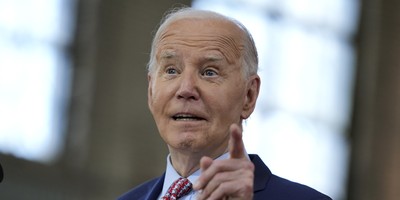WASHINGTON, D.C. -- Speculation that the Federal Reserve is about to begin inflation-fighting interest rate increases appears to be dead wrong. Fed Chairman Ben S. Bernanke is worried more about runaway oil prices contracting the global economy than inflating it with a wage-cost spiral. According to sources close to him, America's leading central bank has no plans for a raise.
That conflicts with the recent announcement that the European Central Bank would raise interest rates to combat what it considers a tide of inflation presaged by rising food and oil prices. Because the Europeans themselves are divided about what to do, the promised rate hike next month is described as modest -- no more than a quarter of a percentage point.
Nevertheless, the prospect of the world's two most influential central banks going in opposite directions reflects an unusual difference in outlook on the global economy by Bernanke and Jeane-Claude Trichet, president of the European Central Bank. Like the Wizard of Oz, Alan Greenspan and other central bankers were hidden behind a non-transparent curtain to evoke an aura of omniscience. The curtain has been pulled away, as Bernanke and Trichet are seen as mere mortals trying to cope with a complicated and contradictory economic climate.
Bernanke has recently poured out ammunition for Fed-watchers seeking to predict the central bank's course. On June 3, in a speech delivered via satellite to an international monetary conference in Barcelona, Spain, he confirmed speculation that inflationary dangers had ended the Federal Reserve's long series of interest rate cuts. Bernanke asserted then that current rates probably would be high enough without raising them.
But six days later, in addressing a conference sponsored by the Federal Reserve Bank of Boston, Bernanke took a firmer position in reaction to the soaring price of oil. By promising that the Fed would "strongly resist" inflationary expectations, he generated talk of a rate increase -- probably later this year.
Recommended
Bernanke's strong language followed by four days the surprise announcement by Trichet that the European Central Bank's governing council, meeting in Frankfurt, had agreed on a subsequent rate increase after heated debate. That constituted a major internal victory for the anti-inflation hawks in Europe led by Axel Weber, president of the German Bundesbank.
Bernanke, according to sources, disagrees more with the European position than is reflected by his public statements. In his speech to the Barcelona conference, he said that the spike in oil prices could simultaneously slow already low economic growth while raising inflationary dangers -- recalling the "stagflation" of 30 years ago. But privately, Bernanke is said to be much more concerned about low growth.
According to these reports, Bernanke feels that $125-a-barrel oil and $4-a-gallon gasoline threatens contraction more than inflation despite the daunting prices. The depressing impact on the oil-driven American economy is especially menacing in his view. Bernanke knows that he faces difficult choices that his lionized predecessor Greenspan never had to confront. Indeed, the traditional tools of the central bank may be inadequate to the task.
There is no question that low-keyed Ben Bernanke is calling the tune at the Fed. Lack of control by him was suggested June 5 when Jeffrey Lacker, president of the Richmond Fed, and Charles Plosser, chairman of the Philadelphia Fed, in separate speeches took issue with the Fed's bailout in March of Bear Stearns. But regional bank presidents have a minor role setting monetary policy, and the other Federal Reserve governors go along with their chairman.
Nobody believes the European Central Bank is going to force down oil prices by raising interest rates. International market adviser David M. Smick (whose new book "The World Is Curved" will be published in September) suggests the problem may be "hoarding." Under this theory, China and developing countries with growing economies are storing up large quantities of fuel to guard against shortages. To a lesser extent, some corporations may be engaging in the same process.
Central banks can do nothing about hoarded oil, though coordinated international activity might be effective. But coordination seems remote, with Europe and America heading off in different directions with opposing analyses of the nature of the danger posed by runaway oil prices.

























Join the conversation as a VIP Member